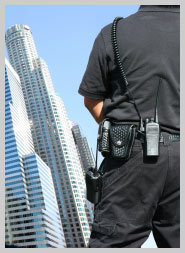Hotel Security in the US
Cornell University’s “School of Hotel Administration”and their center for hospitality research has an interesting study on safety and

security in US hotels. They describe it thusly:
An investigation of the physical attributes or features that signal safety and security in a sample of 5,487 U.S. hotels revealed significant differences in the distribution of these key amenities in various hotel price segments and geographical locations.
The study has looked at a few thousand US hotels, in most categories from budget motel to luxury hotels, taking a closer look at what kind of safety and security measures that they have, or have not implemented. Not surprisingly, the upscale or luxury hotels score the best on the scale, which apparently goes from 0 to 100, with an average of about 64.
The study is very interesting – well worth a read, but there are a few problems, that mostly will be obvious to people in the industry, but might not be so straight forward to everyone. Here’s an overview of the criteria:
Each hotel was given a 1 if it had the physical attribute and a 0 if it
did not. Each hotel’s score was determined by taking the presence or
absence of the attribute and multiplying it by the weighting for that
specific attribute. A score of 100 would mean that the hotel
possessed all of the physical features in the index. The presence of
some but not other features would produce a score greater than 0
and less than 100.
In itself, this seems okay. A basic score system with appropriate weighting on the different criteria. Let’s have a look at the criteria, then, shall we?
|
So what’s missing from this picture? Safes? No. Well, people are missing from this picture. The presence of actual humn beings as security personnel has been, and is, instrumental in hotel security. A hotel manager’s greatest concern when it comes to security is how to integrate security with the image of hospitality and service that is crucial to any hotel in order to do business and stay in business. The use of skilled and trained people in hotel security can never be replaced by machines, and looking at the above list of crieteria, this “scientist” has left out the most important bullet of them all, which renders the whole report rather useless. Interesting, but rather useless none the less.
An electronic lock is nice, of course, and so are security cameras. But what happens if there aren’t trained eyes watching the screens, or someone whose job it is to have the master key to that lock when something happens inside a room that needs tending to right away? Well… it’s not a very good idea, lets just put it like that, shall we?
Anyway, read the report – it’s interesting.
